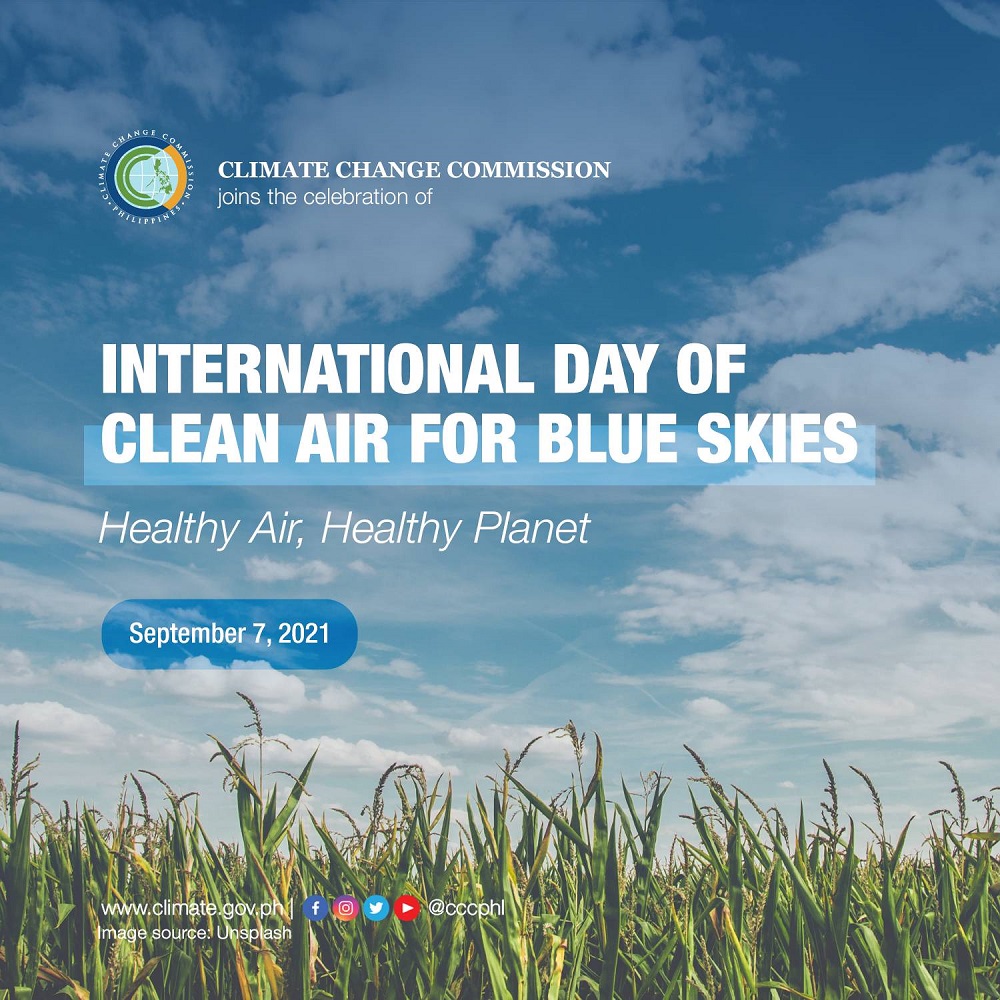
September 05, 2021 Sunday

MANILA, 06 September 2021 — The Climate Change Commission (CCC) emphasizes the direct relationship between air pollution and greenhouse gas emissions, in celebration of International Day of Clean Air for blue skies tomorrow.
September 7th of every year is declared as the International Day of Clean Air for blue skies through United Nations Resolution 74/212 adopted in December 2019 to promote actions to improve air quality, bearing in mind that clean air is important for people's health and livelihood.
This year’s theme, “Healthy Air, Healthy Planet” emphasizes the health aspects of air pollution, in the unique context of the COVID-19 pandemic. This year’s observance focuses on prioritizing the need for healthy air for all, while keeping the conversation broad enough to encompass other critical issues such as climate change, human and planetary health, and the Sustainable Development Goals.
Аir pollution is among the greatest environmental risks to human health. Estimated millions of premature deaths across the world are attributed to indoor and outdoor air pollution.
Particularly in developing countries, air pollution disproportionately affects women, children, and the elderly, especially in low-income populations as they are often exposed to high levels of ambient air pollution, and indoor air pollution from cooking and heating with wood fuel and kerosene.
However, air pollution is also one of the main avoidable causes of death and disease globally.
Short-lived climate pollutants (SLCPs) are among those pollutants most linked with both health effects and near-term warming of the planet. SLCPs persist in the atmosphere for as little as few days or up to a few decades, so reducing them can have an almost immediate health and climate benefits.
In the face of global challenges like climate change, air pollution, social and economic inequalities, and the ongoing COVID-19 pandemic, the CCC said that ensuring cleaner air is imperative in our goal to build back better.
The climate body acknowledges that improving air quality can enhance climate change mitigation, and that climate change mitigation efforts can improve air quality. It means that many actions and policies that reduce air pollution also reduce greenhouse gases that contribute to climate change.
These same measures can be leveraged to put greater ambition in the implementation and enhancement of our Nationally Determined Contribution (NDC) or national climate targets. The benefits of cleaner air may thus incentivize actions that complement the motivation to help achieve the worldwide goal to limit global temperature rise to well below 1.5 degrees Celsius, humanity's survival threshold.